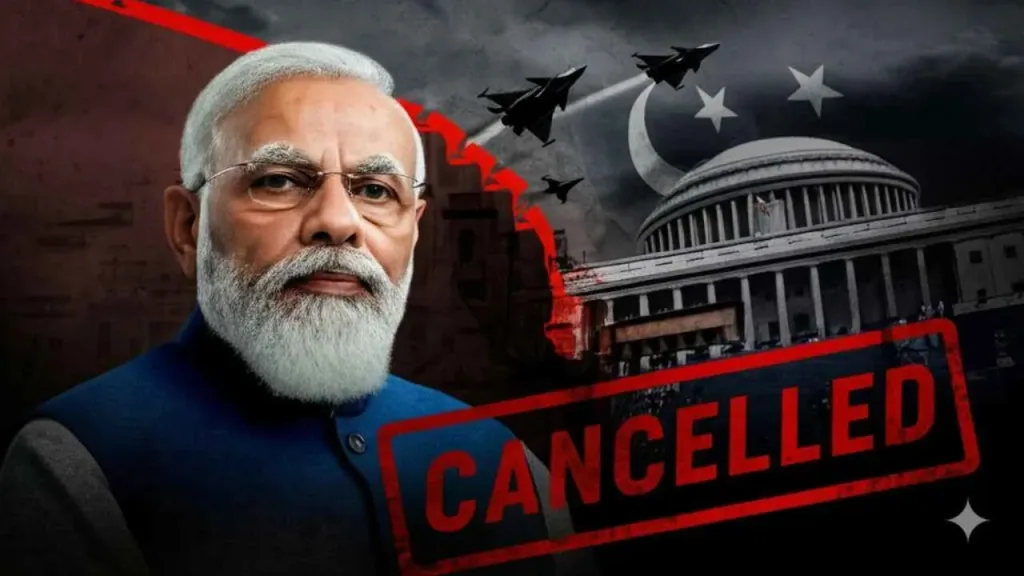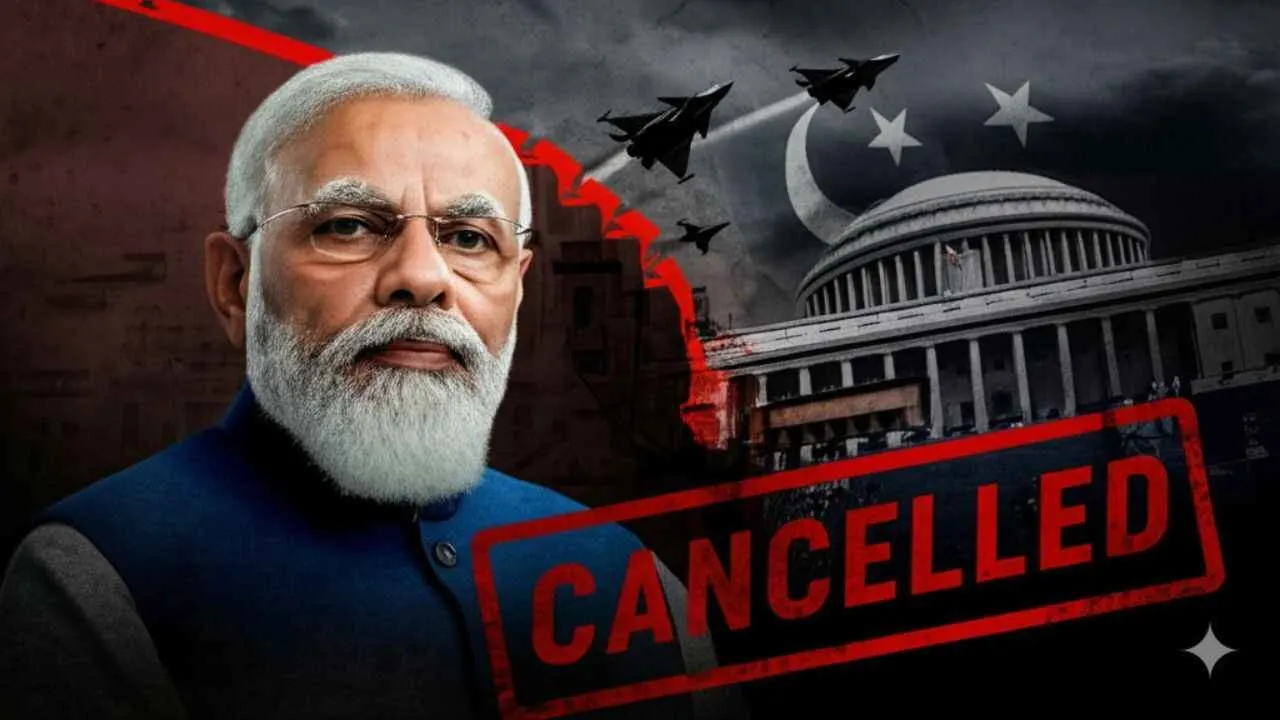In a bold and historic move following the Pahalgam terror attack, the Indian government has launched a series of aggressive diplomatic and military measures against Pakistan, marking the most significant escalation in bilateral tensions in years.
The swift and coordinated response came after Prime Minister Narendra Modi convened a high-level Cabinet Committee on Security (CCS) meeting in the capital. Within hours, a cascade of impactful decisions signaled that New Delhi is no longer willing to tolerate what it views as Pakistan’s passive complicity in cross-border terrorism.
🔥 Key Developments at a Glance
- All Pakistani visas revoked across categories.
- Pakistani High Commission in New Delhi ordered to shut down.
- 48-hour deadline issued for all Pakistani diplomats to leave India.
- Indus Waters Treaty cooperation suspended.
- Attari-Wagah border sealed, halting all bilateral civilian and trade movement.
- Indian Armed Forces placed on high alert—all operational units awaiting orders.
🇮🇳 Diplomatic Retaliation: Visas Revoked, Embassy Closure Ordered
Following the CCS meeting, the Ministry of External Affairs issued a striking statement: “India has withdrawn all categories of visas granted to Pakistani citizens with immediate effect. The Pakistani High Commission in New Delhi will cease operations within 48 hours.”
This marks one of the most severe diplomatic ruptures between the two nations since the Kargil War in 1999.
“This is not a knee-jerk reaction. It’s a calibrated shift in India’s Pakistan policy,” said a senior official from South Block.

🌊 Indus Waters Treaty Suspended: A Strategic Lever Pulled
Perhaps the most geopolitically significant move was India’s suspension of the Indus Waters Treaty, a longstanding accord signed in 1960 under the World Bank’s mediation. The decision disrupts the delicate balance of water-sharing between the two countries and sends a powerful signal: terror and cooperation cannot coexist.
“This is a wake-up call. Any cooperation moving forward will be conditional on tangible anti-terror commitments from Pakistan,” an MEA spokesperson added.
🛑 Border Sealed: Attari-Wagah Closed Indefinitely
India has sealed the Attari-Wagah border, bringing to a halt the already limited trade and people-to-people exchanges. Border security has been reinforced, with orders to shoot down unauthorized drones or cross-border incursions.
“Our focus is national security first. Everything else is secondary right now,” a senior Home Ministry official told the press.
✈️ Armed Forces on High Alert: Military Response Under Review
The Indian Army, Navy, and Air Force have submitted a range of strategic options to the Ministry of Defence, including airstrikes on known terror camps across the Line of Control (LoC) in Pakistan-occupied Kashmir.
High-ranking defense officials confirmed:
- Air Force units, including Rafale jets, are on standby at forward airbases.
- Surveillance has detected Pakistani aircraft movement near Lahore, Rawalpindi, and Karachi, interpreted as precautionary military signaling.
- A “low-risk, high-impact” operation is under active consideration.
“We are not responding emotionally; we are responding decisively,” a senior defense official emphasized. “This time, the response will not be symbolic.”
🕊️ Global Reactions and Pakistan’s Deafening Silence
While global leaders—from Washington to Paris—have condemned the Pahalgam attack and expressed solidarity with India, Pakistan’s leadership remains silent. Neither Prime Minister Shehbaz Sharif nor Army Chief General Asim Munir has issued a public statement.
“This silence is more than diplomatic—it’s strategic,” said an Indian diplomat. “It reflects fear of reprisal.”
🧭 What Comes Next: Strategic Patience, Tactical Precision
As tensions soar, the Indian government has emphasized a measured, legally justified, and strategically sound response. The final decision now rests with the Prime Minister’s Office.
Sources confirm:
- The action plan has been finalized.
- The military is awaiting the Prime Minister’s green light.
- No timeline has been shared, but the response is “inevitable and imminent.”
India’s messaging is clear: This is not a moment of bluster. This is a turning point.
“We are not stepping back,” Prime Minister Modi reportedly told the CCS. “Our silence has been misread. Now, our action will be our answer.”
🧩 Conclusion: A Defining Moment in India’s National Security Doctrine
India’s reaction to the Pahalgam attack represents a watershed moment. With diplomatic ties severed, military readiness at its peak, and the international community watching closely, the subcontinent now stands at the edge of a new, uncertain chapter.
As India prepares for what could be a decisive countermeasure, one message echoes across its corridors of power: terror will be answered—not just with condemnation, but with consequence.
